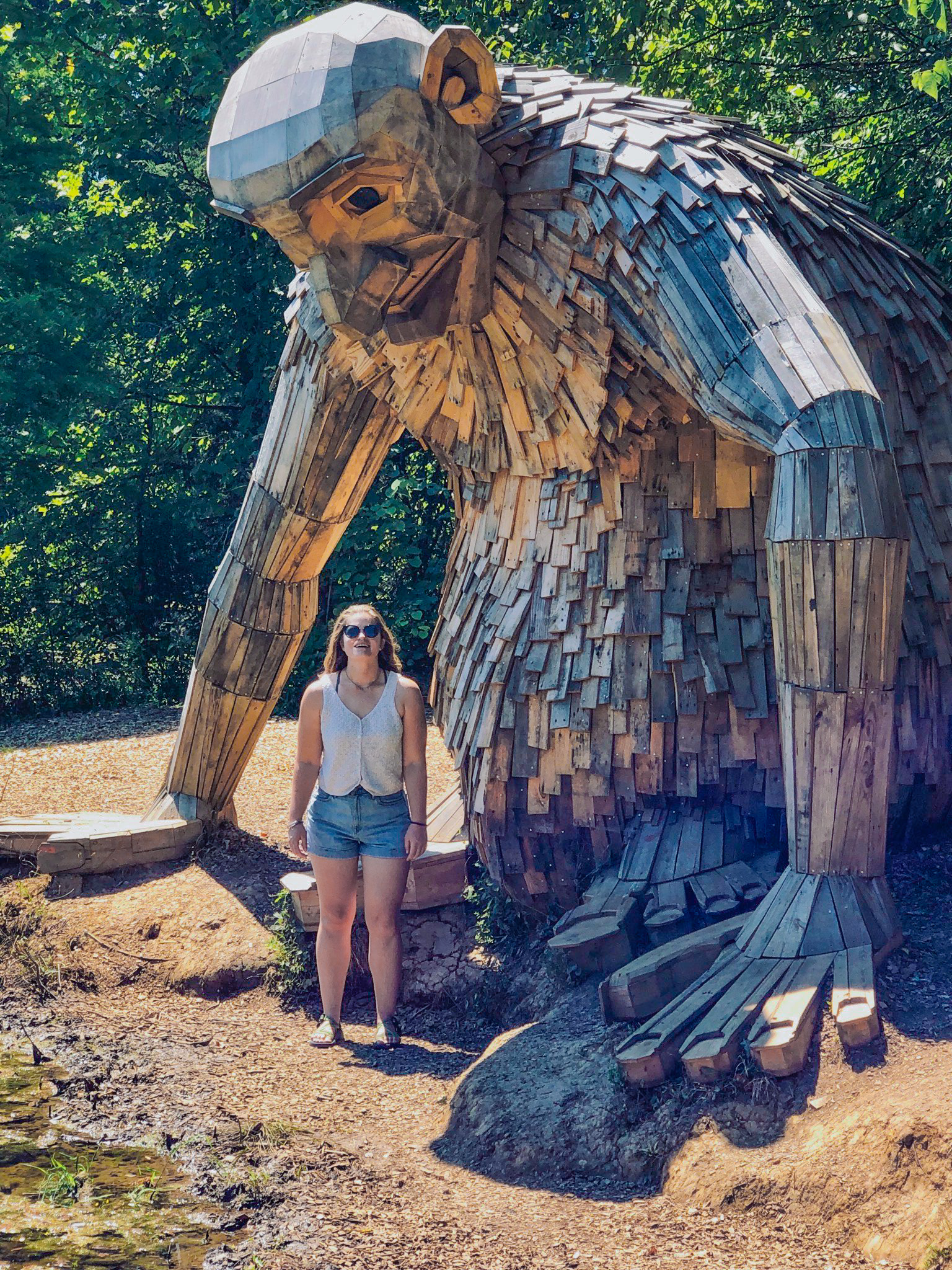Forestry Graduate Student Spotlight – Catherine Henry
Catherine Henry, PhD Candidate, researches regeneration of northern hardwood forests in Michigan

Hometown: Pottstown, Pennsylvania
Degree in progress: Ph.D. in Forestry and Ecology, Evolution, and Behavior
Expected graduation date: 2022
Research focus:
Northern hardwood forests, a dominant forest type in Northern Michigan, provide valuable economic products including sugar maple, Acer saccharum, and lumber, as well as recreational opportunities. Sustainable management relies on continuous recruitment of desirable species from natural regeneration in the stands. How successful have we been in achieving this continuous regeneration? My research focuses on current trends of tree regeneration as well as age structure in northern hardwood, with a particular focus on sugar maple dynamics. This information can guide future management decisions by clarifying the success of past management in achieving (or not) uneven-aged forests with desirable regeneration strata.
What inspired your interest in pursuing a MS/PHD in forestry?
Forestry offered the opportunity to combine my interest in ecological research with my goal of conducting research which has a direct impact on society.

Why Forestry?
I chose to study at MSU because of the research in Dr. Mike Walters’ silviculture lab. I was excited to join his large-scale project to assess northern hardwood forest management in collaboration with the Michigan Department of Natural Resources. During my visit to MSU as an accepted student, I really enjoyed the atmosphere at MSU and in the Forestry Department, and I felt it would be a great fit personally.
What has been one of your best experiences within graduate school so far?
One of my best experiences within graduate school so far has been the opportunity to travel all across the Upper Peninsula of Michigan as well as the northern Lower Peninsula as part of my field research. I’ve had the opportunity to see so much of the beauty of Michigan and contribute through my research to maintaining our natural resources for decades to come.
What do you want others to know about this program?
There are so many different areas of research in our department – it’s been great to be exposed to different aspects of forestry while focusing on my own research.
What are some of the best things about being an MSU student?
Before we began working from home last year, one of the best things about being an MSU student who works in the Natural Resources building was being right across the street from the Dairy Store. I used to visit weekly. Besides the ice cream, the events hosted by our department to come together socially and academically really foster a sense of community that creates a supportive atmosphere for students at MSU.
Any thoughts or advice for current students?
Take advantage of the free seminars and workshops offered by different programs on campus! There are so many opportunities to develop skills and grow as a person. I’ve particularly enjoyed workshops hosted by COGS and CAPS, and I also recommend the Dialogue series.
What are your future plans?
The only concrete plan I have currently is to keep working on finishing my dissertation. After that, who knows! I’m interested in combining my research skills, passion for the environment, and science communication know-how in a career outside of academia.



 Print
Print Email
Email




